Why warmer weather doesn’t mean the end of fuel poverty

As spring turns to summer, many of the most vulnerable are still struggling to have warm showers or hot food



As spring turns to summer, many of the most vulnerable are still struggling to have warm showers or hot food

In a year when the energy crisis has dominated both the news agenda and people’s lives we, at National Energy Action, know that all of our work has never been more important.
Fuel Poverty Focus has always been our way to update our members about the crucial work in our sectors. Now, after asking you about why and how you read this magazine, it has undergone a redevelopment to ensure it is as relevant as possible and continues to be an important benefit of your membership.
In this issue we have four pages of your news and updates – helping the most vulnerable members in your communities. We also mark 10 years of our ‘Take Control’ project with OVO.
As the warmer months approach,
fuel poverty still remains an issue for many. On page 11 we share how our work helps those in fuel poverty all year round – those who still have to ration warm showers and hot meals. Our head of policy Matt Copeland writes about our policy priorities on page 5, and you can find our fundraising updates on page 12. While Fuel Poverty Focus may have a few differences, one big thing hasn’t changed. It is still your magazine and we need your support. If you have any projects you’d like to be featured or anything else you’d like to see from us please email focus@nea.org.uk. And look out for the next issue in September.
Thank you

03: Project in Focus
Take Control: 10 years with OVO
04: Research in Focus
Research round up with projects including Cadent and NGN
05: Policy in Focus
Why more help is needed
06: Members in Focus Updates from our members
08: Members in Focus
Updates from our members – from Bristol, London and Merthyr Tydfell
10: Members in Focus Updates including from Switchee
11: People in Focus
Providing vital client support
12: Campaigns in Focus Fuel poverty in summer
14: Training in Focus Learning opportunities
15: Fundraising in Focus

What’s on
About Fuel Poverty Focus

Fuel Poverty Focus is the quarterly magazine, produced by National Energy Action, for its members. If you have content ideas for next issue and beyond please email focus@nea.org.uk
Newcastle Head Office West One, Forth Banks, Newcastle upon Tyne. NE1 3PA
This year marks 10 years of the Take Control project in collaboration with OVO. This England and Wales-wide programme has successfully delivered household advice, income maximisation services and training support for frontline workers to support people in fuel poverty.
As part of the Warm Home Discount Industry Initiative programme, Take Control focuses on enabling advice workers to give practical energy tips and support to clients in fuel debt, while also supporting low-income households through community energy advice events and one-to-ones, and telephone advice.

Take Control also carries out benefit entitlement checks and/or claims support for vulnerable, low-income households, improving financial wellbeing. In the 10 years that the Take Control project has been running, it has:
● Given vital energy efficiency advice to over 8,600 households across England and Wales.

● Supported over 1,100 people with benefit entitlement checks and claims support. This helped achieve much-needed additional income of approximately £2.1 million for households across England and Wales.
● Trained over 5,600 frontline workers in fuel debt, energy awareness and a range of other vital topics who went on to provide information to approximately 3.5 million households across Great Britain.
Gareth Wood, Vice President Operations at OVO says that the project has had a real impact on health and wellbeing. ‘I am incredibly proud of what the Take Control project has managed to achieve in its 10 years and the real difference it has made to people struggling in difficult circumstances,’ he says. ‘The impact this support has had on people’s physical, mental and financial wellbeing illustrates the importance of the programme and the significant reach it has in tackling fuel poverty.’
Adam Scorer, Chief Executive, National Energy Action, says: ‘For 10 years National Energy Action and OVO have worked together to make a difference to hundreds of thousands of people in fuel poverty.

‘From training energy advisers to supporting people to maximise their income, the programme has made a big difference to the most vulnerable. The advice and additional income has been vital for so many.’
Greg* was unable to work due to a number of serious medical conditions and was in receipt of Universal Credit and PIP, leaving him with little money. Having a warm home was absolutely essential for him to manage the effects of his conditions and overall wellbeing.
Greg was also reliant on an electric medical device which meant he was consuming high levels of electricity each day. When Greg first spoke with us, he was £500 in arrears despite paying all of his bills. He’d been passed on to a debt collection agency, causing Greg extreme stress and worry and as a result, was cutting back on his heating.
To support Greg, the first thing we did was check to make sure he had received all the support he was entitled to through the Government’s cost-of-living package. Our adviser also helped Greg join the Priority Services Register, provided advice and information Warm Home Discount, and gave easy and practical energy efficiency tips.
Our adviser then went on to tackle the issues regarding the arrears by dealing with the supplier and debt collection agency on Greg’s behalf. From this, our adviser ascertained that Greg was receiving bills for the incorrect meter. Following a number of phone calls giving the supplier the correct meter readings, Greg was rebilled. Not only was he no longer in arrears, he was over £700 in credit. He was also added to the waiting list for a smart meter.
Greg no longer had to worry about the affordability of his bills and was now confident about reading his meter.
The project has helped around 3.5 million households in Great Britain
For a decade, OVO and National Energy Action have worked in partnership to help the most vulnerable
For a decade National Energy Action has partnered with OVO to make a difference and providing life-changing support
National Energy Action’s research team has been working with National Grid Electricity Distribution, Northern Gas Networks, Cadent
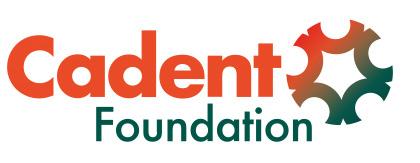
cross-utility study that considers the range of support and service providers that can work to support vulnerable consumers – both from statutory and non-statutory perspectives. The research is considering the evolving nature of energy vulnerability and what it means for community resilience and consumer safeguarding, both in the current energy landscape and during future energy transition pathways.
The research recognises that there is a large range of vulnerabilities that interact in the context of different utilities and that this is complex. It also aims to provide insights for networks to innovate around customer benefits.
Over the last few months, our research team has been busy working on a number of projects to support National Energy Action’s strategic priorities. The social research work programme aims to deliver data-driven insights that can shape and support policy and practice, with a particular focus on the lived experience of fuel poor and vulnerable consumers.

Several of the team’s projects bring the role of energy networks in supporting vulnerable energy consumers into sharp focus. Two projects are detailed below, but the team is also working alongside National Grid Electricity Distribution and partners on the Ofgem Network Innovation Competition funded EQUINOX (Equitable Novel Flexibility Exchange) project, to develop novel commercial arrangements and supporting technical integration to unlock flexibility from residential low carbon heating, while meeting the needs of all consumers, including the fuel poor and vulnerable.
Commissioned by Northern Gas Networks and funded under the Network Innovation Allowance (NIA), the research team is also mid-way through a
Through workshops, extensive evidence reviews and calls for evidence, the research team explores key aspects of energy vulnerability:
● Financial vulnerability, affordability, and debt.
● Targeting ‘gaps’ in the consumer groups in awareness and access to support.
● An exploration of what support is available, why it is or is not taken up, and why.
● A safe and fair transition –and the role of networks.
● Partnership working, including existing strengths and gaps to address.
Another recent success in the team has been the publication of an evaluation of the Reactive Response service, a pioneering collaboration between National Energy Action and the Cadent Foundation. The Reactive Response programme offered support to vulnerable customers who had their gas supply disconnected by an engineer on safety grounds and were unable to arrange and pay for the necessary repairs on their own. Cadent engineers who identified customers in vulnerable situations who would be at risk of significant harm if they were left without heating or hot water then made a referral to National Energy Action, who arranged for the necessary works to be carried out at no cost to the customer. From March 2021 to May 2022, over 1,400 fuel poor and vulnerable households were kept on supply.
● If you have any questions, or would like to discuss the team’s work in more detail, please contact Research Manager, Helen Stockton on helen.stockton@nea.org.uk
While energy prices have calmed in recent months, things haven’t become any easier for households, and in fact they are worse than at any other time in the crisis.
The reduction in prices has merely reduced the level of subsidy that the UK Government has provided for our energy bills, but the price that households pay has not changed since the winter. Universal support has also come to an end as we no longer receive a £67/ month rebate towards our energy bills, meaning that despite the price cap drop, bills have not gone down.
Recent progress has been made in some areas. The UK Government committed to eliminating the premium that prepayment meter customers pay. Ofgem has stepped in to put a pause on the forced installation of prepayment meters, and set new, stricter rules on when a prepayment meter can and cannot be forcibly installed.
A new energy efficiency scheme has also been introduced. The Great British Insulation Scheme will provide £1bn of funding for single measures over a three-year period, which can be accessed by a large group of households. While
National Energy Action is concerned about the expectation that households make a 10% contribution to the scheme, a fifth of the scheme is ringfenced for the poorest households who will not need to make any contribution.
But none of this solves the crisis. Wholesale prices will not come down for a long time, certainly not this year, and possibly not for the rest of this decade. More must be done to help households with their bills.
Elections are on the horizon
Elections will take place next year, and it is imperative that all political parties are ambitious in their manifestos and commit to making enough resource available for energy efficiency in lowincome homes to get us on track to meet our fuel poverty targets. We must see more help for renters to live in more energy efficient homes. This will require tougher minimum energy efficiency standards for landlords to meet, but it will also need more help for landlords to carry out that work.
We also need to ensure that our current schemes work as well as possible. ECO 4 is a massive scheme with £1bn/ year committed to helping fuel poor
households upgrade their homes, but it is not performing as well as it could. The UK Government will need to step in to improve the scheme’s deliverability while ensuring that it remains focused on those who need it most.
All of this will take time and we will not be able to insulate millions of fuel poor households overnight. They will need more help this winter and beyond, and that help needs to be financial.
In the winter just gone, the UK Government provided a huge amount of support to help with everyone’s bills. While it may not be able to replicate that entirely, there must be more support for fuel poor households this winter. The already confirmed cost-ofliving supplements aren’t enough.
The UK Government has committed to introducing new consumer protections in the energy market from April 2024 onwards. These must be able to help a lot of people and give a significant discount on energy bills, as well as give proportionate help to those with the highest need. Lastly, it must be easy to access for prepayment users. If it fails on any of these tests, we will undoubtedly have many more hard winters to come.
With the end of vital financial support, National Energy Action’s Matt Copeland says fuel poor households will need more help this winter and beyond
We’ve made progress, but more is needed to help those in fuel poverty
Energy advice charity, Act on Energy, has helped over 5,000 households – and there is more support to come
Act on Energy is a leading energy advice charity based in the heart of the Midlands. The charity offers support to residents in Worcestershire, Warwickshire and the whole of the West Midlands Combined Authority from Coventry across to Wolverhampton with energy efficiency advice, billing and debt issues. Act on Energy also works on local authority delivery schemes such as Sustainable Warmth and the Home Upgrade Scheme.
Since October 2021, Act on Energy has been administering the Household Support Fund on behalf of Worcestershire County Council, which has seen residents in Worcestershire benefit to the tune of £2 million. The scheme has been fine-tuned over time, but it’s designed to support vulnerable people on low incomes with little or no savings with their current energy bills and energy debt. Water bills and debt can also be included, and the scheme can also help pay for the repair, service and replacement of boilers and heating systems. Households with children can receive up to £500 while households with just adults receive up to £300.
“Thank you so much. I could cry. You have no idea how much this means to me. I can clear my arrears
Bristol Energy Network organised the citywide crisis fund to help those struggling with energy bills.
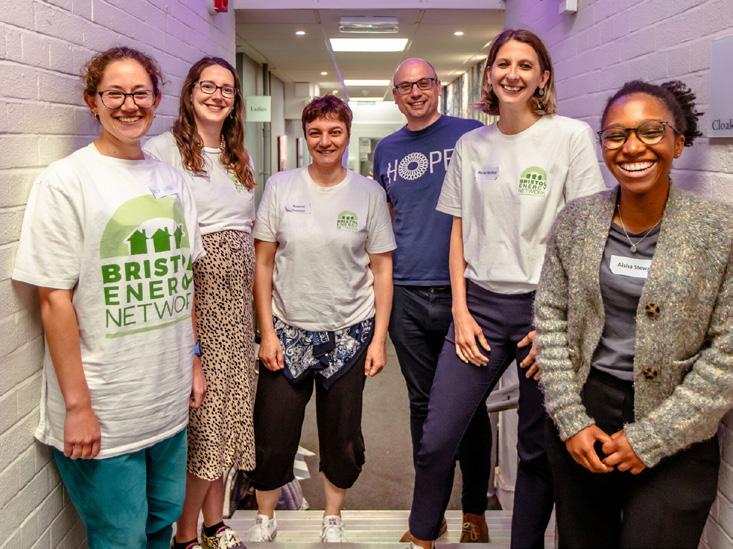
and be slightly ahead. Thank you so much once again it’s a massive help,’ said one household support fund recipient.
Thousands of households helped Rachel Jones, Act on Energy’s CEO said: ‘So far, we’ve helped more than 5,000 households with either their unmanageable energy debts or current usage. And often it’s people who have never been in energy debt before. But the current crisis has affected everyone – and this safety net has played a crucial role in helping the most vulnerable.
‘The newest phase of the scheme is about to kick off with further funding. We anticipate we’ll have more households coming to us for support - as well as those who we’ve already been helping.’

The charity is set to create a new role to follow up on the Household Support Fund by providing outreach, complex case work to those who have been supported.
Bristol Energy Network would like to say a massive thank you to everyone who donated to or shared the Bristol Emergency Winter Fuel Fund. This city-wide crowdfunder was set up to help those struggling or unable to pay their energy bills. Through people’s incredible generosity, they raised £32,746 for people in need in Bristol. Aaron James from Bristol Energy Network, says: ‘Our role has been to project manage and lead the fund, while five amazing community partners on the ground in Bristol do the pastoral work and get grants to people in difficulty. Thank you again.’
After getting a top-up grant, the Community Development team at Merthyr Tydfil Housing Association has expanded their ‘Cosy and Warm’ programme to include energy saving advice
The Community Development team at Merthyr Tydfil Housing Association was awarded £38,334 as a top-up grant in January 2023. This was part of their Fit and Fed Grant, which supported residents through the cost-of-living crisis.
The Cosy and Warm (Clyd a Chynnes) project was one initiative set up to establish three sites across Merthyr Tydfil in South Wales which provided weekly slow cooker classes and added energy saving advice into the mix.
From slow cooked beef bourguignon to slow cooked loaves of bread, participants increased their confidence with cooking on a budget. It
Community Energy London (CEL) members came together when the scale of the winter crisis 2022/23 became apparent, offering help across the capital.
CEL members were already leaders in ‘Energy Cafes’ that provide crucial advice and small items like lightbulbs and hot water bottles, as well as working on a project funded by the GLA on fuel poverty and energy advice.
As winter 2022/2023 beckoned, local authorities, community groups and places of worship responded as soon as it became apparent that the unprecedented sudden rise in electricity bills would leave the poorest in society dangerously cold.
Organisations all over the country opened up warm spaces offering activities, lunches and a place to stay warm and connected. CEL members decided they were well placed to work with such groups, providing information and free small measures to help keep heat in and cold out.
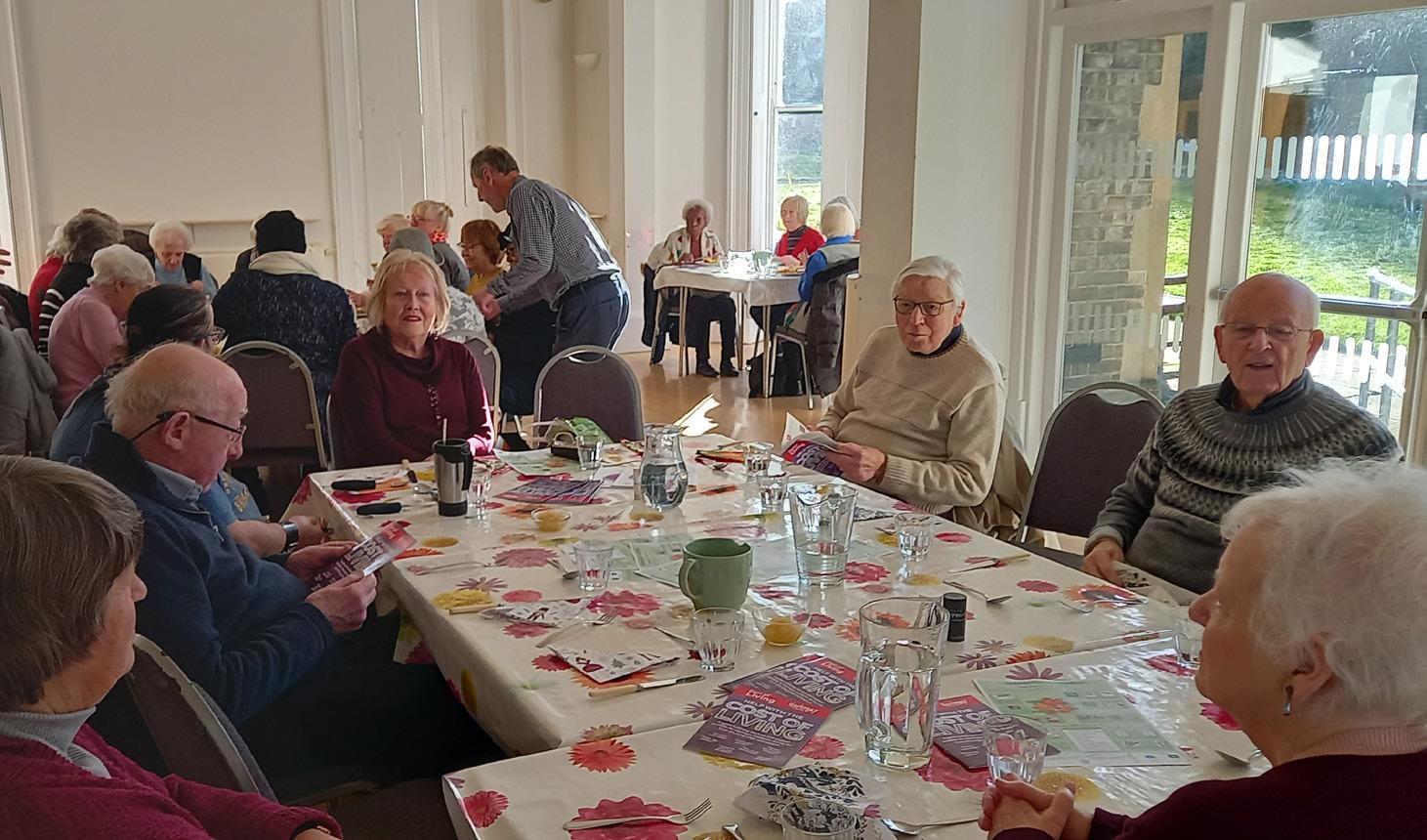
A fundraiser and a donation from the Worshipful Company of Fuellers enabled four CEL groups to set up events to hand out small measures for anyone who needed them, whether a homeowner or not. This included reflectors for radiators, film for
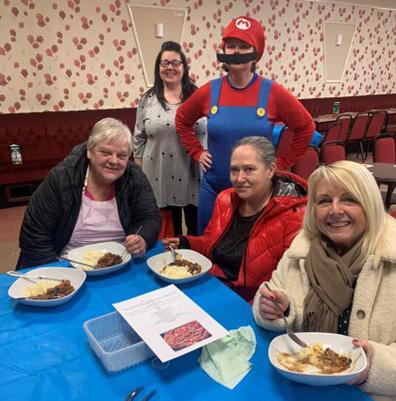
single glazed windows, brushes for under doors, LED lightbulbs, hot water bottles and, crucially, fuel vouchers for people at risk of being disconnected when prepayment meters can no longer be topped up.
For example, the Highgate Society Sustainable Living Group which has the motto of “character, comfort and low carbon” used its CEWS funding to give friendly talks at Warm Space lunch clubs,
demonstrating and distributing items. The lunch talks proved very popular, with diners taking away items and being inspired to spread the information.
The events also provided the opportunity to signpost to homeowners how they can invest in bigger measures and how people struggling to pay their bills or adequately heat their homes can find support through Energy Advice London as well as Camden and Haringey’s support programmes.
also proved that the meals they made were cheaper and tastier alternatives to pre-made packs in supermarkets. They even saved money on their energy bills through the 10-week project by using a slow cooker instead of other more energy-consuming methods of cooking.

Each participant received a slow cooker at the start of the project and at the final session of the first round of the project, they each received an energy efficient 8.5 litre capacity air fryer along with an energy and shopping bill busting recipe book.
They also worked in partnership with Merthyr Tydfil County Borough Council and Keep Wales Tidy as part of protecting the local environment with recycling and reusing items through swap shops and recycling.
As a way of evaluating the Cosy and Warm sessions, the Housing Association Charitable Trust (HACT) Tool was used to measure the difference the project made, including the financial inclusion
survey, local environment survey and their Mental Health Calculator (using the Warwick/ Edinburgh Wellbeing tool kit).
The combined value of the results in these areas, along with regular attendance for hobbies, generated a social value of £128,413. The Mental Health Calculator demonstrated that the participants who completed the forms averaged an improvement of 6.5 points for the mental wellbeing through their engagement in the project. This resulted in a further social value of £80,390. The combined social value for the project has been £208,803.
This is just the beginning of the Cosy and Warm (Clyd a Chynnes) project, as Merthyr Tydfil Housing Association will launch new rounds of sessions through 2023 and 2024.
From warm spaces, to free small measures like lightbulbs and hot water bottles, Londoners have had help so they can keep the heat in and cold out
Beanbag Care launches new ways to manage heating in the home
Fuel poverty is a significant issue in England and is particularly acute for vulnerable groups, leading to increased health issues, financial hardship, higher risk of fuel-related accidents, and social isolation.
Additionally, older people may face several difficulties in controlling their heating, which can exacerbate fuel poverty and contribute to health problems. Some of the common difficulties faced by older people include: limited mobility, cognitive impairment, poor eyesight, limited technology skills, and lack of support if they live alone.
To address these difficulties, older people may benefit from tailored support and assistance, such as the installation of easy-to-use heating controls and a home environment monitoring system.
Beanbag Care offers a service called ‘Assisted Comfort’, which addresses the issues. It provides simple and easy-to-use onetouch controls to manage the heating within the home, and a mobile app to control the heating outside of home. It also monitors humidity and carbon monoxide, and generates alerts if levels become unsafe.
● For more information visit www.securemeters.com or email beanbag@ securemeters.com.

With 21% of all carbon emissions in the UK coming from homes, it’s clear that addressing energy efficiency in our housing stock is a critical step in reducing the nation’s carbon footprint. This problem becomes even more pressing when we consider that 83% of homes are privately owned. Encouraging homeowners to improve the energy efficiency of their properties is essential if we are to achieve our national carbon reduction targets.
While many local councils across the UK recognise the need for supporting the uptake of retrofit measures, they face a challenge in establishing funding schemes that encourage uptake by homeowners. However, some councils have already made significant progress in addressing this problem. Local councils across the

South West have partnered with Lendology CIC - a social enterprise lender that provides accessible finance to eligible homeowners - to create innovative loan schemes that fund home repairs, adaptations, and renewable energy measures.

Lendology’s latest report, The Private Sector Housing Report, surveyed councils across the UK about their housing improvement plans. The survey found that while many local councils recognised the need for supporting retrofit measures, they did not currently have a scheme in place. This gap in the market means that many property owners do not know how to improve the energy efficiency of their homes or how to fund such improvements. Even those who are environmentally aware can struggle to retrofit
their properties because they cannot find the right resources.
The report concludes that addressing fuel poverty and reducing carbon emissions is essential, and local councils have a crucial role to play in educating homeowners about the benefits of retrofitting their homes. Through innovative partnerships with social enterprises like Lendology, councils can create loan schemes that provide homeowners with accessible finance to make their homes more energy efficient. By doing so, we can reduce fuel poverty, improve health outcomes, and achieve our national carbon reduction targets.
● To read the full report, visit: https://www. lendology.org.uk/
Tackling fuel poverty was top of the agenda at the inaugural Switchee Summit 2023, last month. Leaders from the world of social housing gathered to confront some of the most pressing issues facing both social housing providers and tenants today.
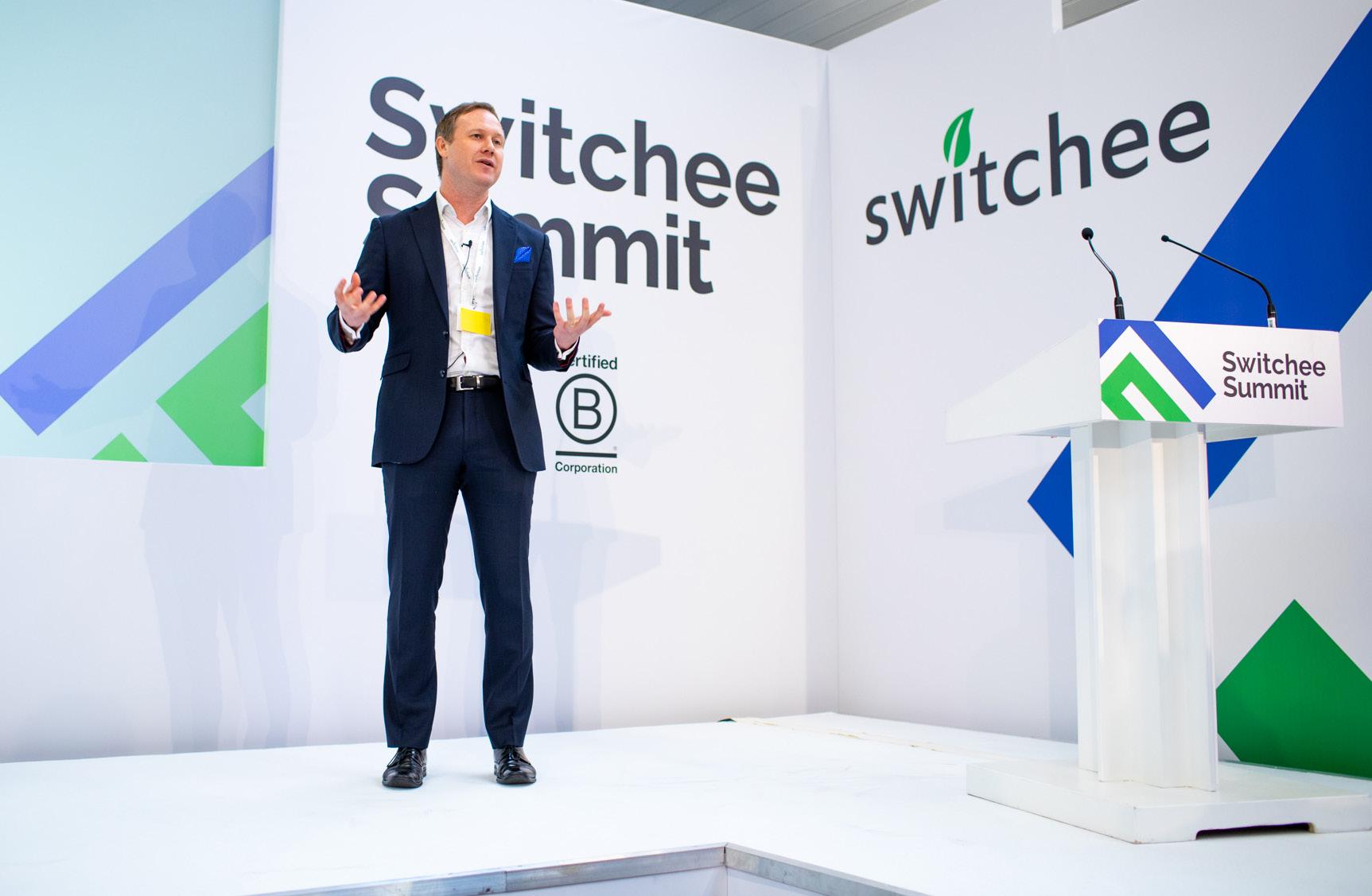
More than 160 people, including academics, local government representatives, charities including National Energy Action, technology providers and housing associations, gathered at the Black Country Living Museum in Dudley to discuss key issues.
Among those were the energy price hikes and cost-of-living crisis, which continue to gnaw away at households’ resources.
Switchee data demonstrates a marked change in resident behaviour, and with it a greater risk of fuel poverty, as a result of the energy price hikes. Over the course of a year, Switchee data showed that residents heated their homes for an hour a day less than previously and turned their thermostats down by an average of 2.33 degrees. Homes are now colder for
longer. This not only puts homes at higher risk of developing issues like condensation, damp and mould but it also puts resident health and wellbeing at greater risk and can be symptoms of fuel poverty.
It’s estimated that 6.6 million UK households are now in fuel poverty. Our data shows that the proportion of social homes where the temperature is now consistently below 18C, which is classed as fuel poverty, has increased by 60% this year. That’s an extra half a million social homes. So, what’s being done to address this by the housing sector?
One exciting discussion at the summit was around the Warm Home Prescription pilots being
run by Energy Systems Catapult and the NHS. Vulnerable people on a low income and with health conditions exacerbated by the cold have their energy bills paid over winter. Results to date have been extremely positive with more trials planned.
They also heard from Dudley Metropolitan Borough Council, who are installing Switchee devices to help reduce fuel poverty and increase energy efficiency amongst residents. The devices themselves help residents save up to 17% on their heating bills and installations are taking place alongside resident information campaigns, which have saved residents £12,000 to date.
Installations are ongoing, but there has been a 97% response rate from residents,as well as

Switchee CEO Tom Robins, explains why fuel poverty was top of the agenda at their summit

nearly 200 requests for help and advice related to energy saving and Warm Home Discount, £10,000 in energy savings and £2,100 funding accessed for residents.
Through the Switchee smart device, data points such as temperature, air pressure, humidity, light and motion are collected to help landlords build a real-time picture of how a property is performing and how residents are interacting with that building. Via an analytics dashboard, it proactively identifies properties at risk of condensation, damp or mould and flags potential fuel poverty.

When a home has been flagged as being at risk of fuel poverty, the data can be analysed on a case-by-case basis. Armed with this data, social housing providers can proactively communicate with residents to see how they can be supported.
Discussions at the Switchee Summit made clear that the social housing sector is committed to innovations of this kind to help tackle fuel poverty.
Unfortunately, the cost of heating our homes will continue to remain high for some time yet, putting more financial pressure on residents. Social housing providers alone cannot fix this problem but embracing technology and data will enable them to make better decisions to prioritise and proactively support those residents who are most in need.
Residents have received materials to help them cook warm food cheaply and keep warm at home

Thanet District Council and Social Enterprise Kent have distributed Warm and Well Packs to hundreds of Thanet households in privately rented accommodation who were identified as being in fuel poverty, thanks to grant funding of £30,000 from UK Power Networks. Residents received materials to help them cook warm food affordably and to help them to tackle draughts and stay warm in their homes, such as electric blankets, air fryers, draught excluders, reflective radiator foil and other cold weather kit. The packs also included information on support services to help residents to access advice on energy and food affordability, vouchers and debt support.
Claire Shelton, Director of Wellbeing at Social Enterprise Kent, said: ‘It’s great to be working in partnership with Thanet District Council to provide valuable support to our community. The items in the pack will be very helpful for householders to reduce bills and provide warm food.’
Bob Porter, Thanet District Council’s Director of Place, said: ‘We welcome the support from UK Power Networks which helped us to provide real material impact to residents across the district. Providing practical support to people who may be struggling to stay healthy and warm at a time when costs are rising, is a priority for the council.’
The Social Sustainability Manager at UK Power Networks, Farina Farrier, said: ‘Our customers are facing unprecedented challenges which is why we have expanded our fuel poverty support, working collaboratively with others to deliver practical support that will make a real difference to people’s lives during the current cost of living crisis.
‘We are delighted to be able to support the work of Social Enterprise Kent and Thanet District Council to provide tangible support to households that would otherwise struggle during the cold weather.’
With spring in full bloom the impact of the energy crisis has lessened for many, but the problems of high energy costs remain for some
Gordon from Bedale is retired, and struggled to stay warm as winter took hold.
He had a log burning stove, an expensive heating source that didn’t warm the whole house, and at 80, this placed his and his wife’s health, wellbeing, and safety at risk.

‘We use a log burning stove, so we were having to leave the door open to heat the whole house,’ he says.
Gordon was one of 6.6 million people across the UK that are in fuel poverty, according to National Energy Action’s figures.
the grid at nighttime too, so there’s more than enough.’
Gordon has gone from struggling in fuel poverty, to providing excess electricity and getting paid for it showing that with help, remarkable changes can be made.
YES Energy Solutions is a Community Interest Company based in Yorkshire helping disadvantaged households to do this.
6.6M people across the UK are in fuel poverty
Gordon accessed funding through the North Yorkshire Home Efficiency Fund managed by YES Energy Solutions for loft insulation and solar panels, as well as information on how to change his behaviour and use tools to further reduce bills. Gordon has joined the millions of UK residents moving over to a smart meter.
‘The meter means I can tell how much energy is being generated,’ he says.
‘The solar panels have generated more energy than we use, and we send some to

It’s not just about improving the fabric of the home, but improving the understanding of those inside the home. Through education, it’s possible for householders like Gordon to regain agency over their energy use, by accessing funding opportunities, adopting energy efficient behaviour changes, and tracking more effectively.
Small behaviour changes alone can save a single household up to £484 a year, or nearly £9 a week.
By adopting a holistic approach to energy, that considers the house and the householder, it would allow the fuel poor households to access the cheapest energy - the energy they don’t use.

Every day, we support people all across the country who are in desperate need of help. With the energy crisis plunging more people into fuel poverty, we saw an increasing number of people unable to stay warm at home.
One of those people was Mark*, a 60-year-old living in rented council accommodation, struggling with grief after the tragic and unexpected death of his partner in July 2022. Since then, he had been having difficulty managing his household bills. Thankfully, he’d managed to access bereavement counselling and told us that his beloved
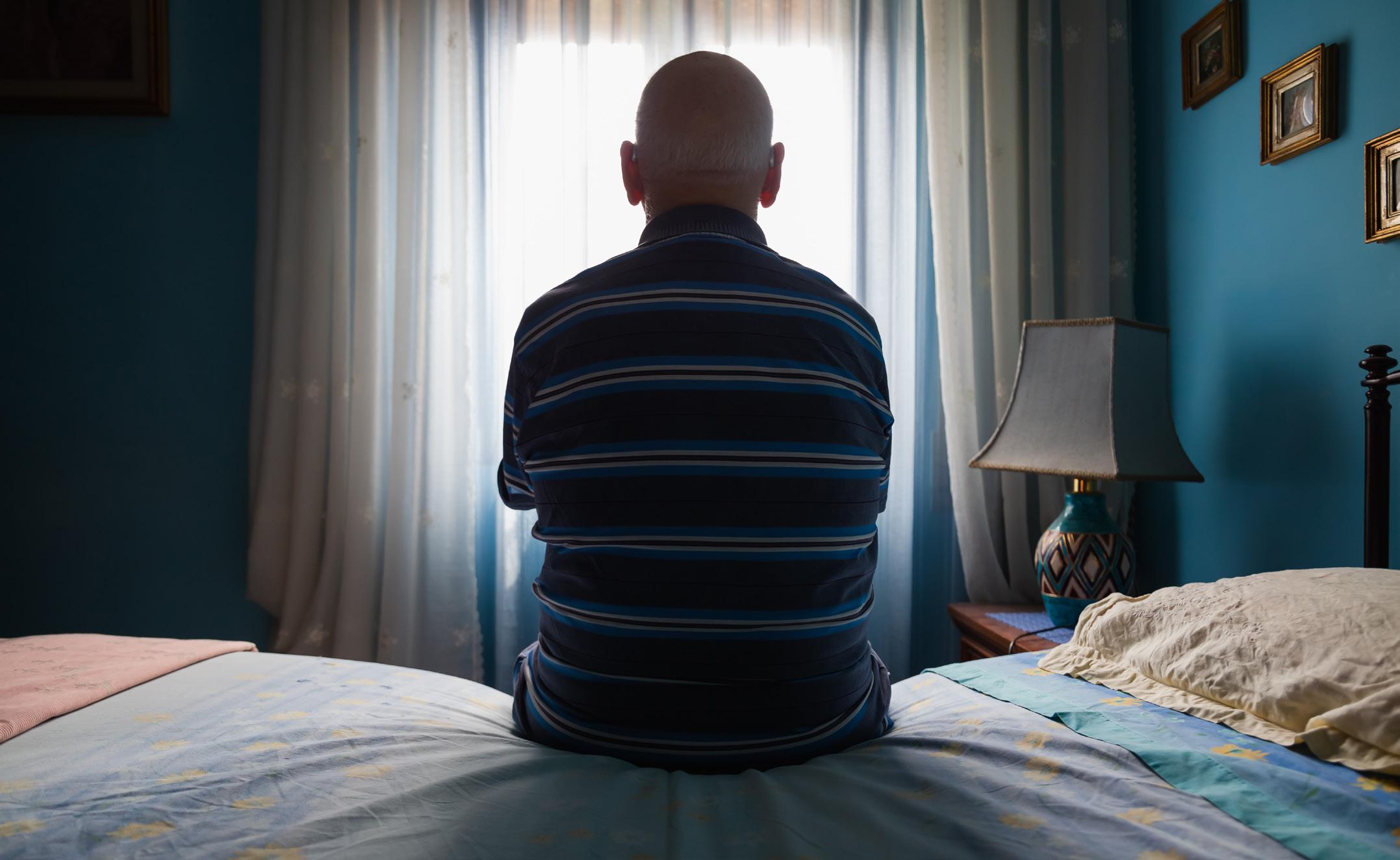
cats were keeping him going through this difficult time.
When we first spoke with Mark, he was on a waiting list for operations on his neck and back for prolapsed discs and had recently moved to insulin injections for his diabetes. Despite this, his PIP application had been rejected and he was undergoing an appeals process. This meant that Mark had very little money to live on and despite adopting lots of money saving tips - including turning his thermostat down - it still wasn’t enough. He’d been overdrawn several times and had less than £5 on each meter.
His immediate need was to get the
heating on as the winter weather was closing in, so our adviser arranged for a fuel voucher to be issued as soon as possible – a lifeline for Mark.
Mark was also having issues topping up his smart prepayment meter which was showing a debt of £100.
To tackle this issue, our adviser got a letter of authority so she could talk to the supplier on his behalf to resolve this issue for him directly. This led to the supplier discovering that the serial number on the meter didn’t match the one on their system.
Because of the complexity of the case, our adviser explained to Mark that we could help challenge the amount owed, negotiate a repayment plan, and ask for compensation.
Our adviser then worked with the supplier who agreed to waiver the amount Mark owed – a total of £450. She also arranged for missed energy bills support scheme payments, totalling £400 to be applied to the meter. The £850 proved vital for Mark amid the energy crisis.
Following National Energy Action’s support, Mark said: ‘I want to thank you for everything you have done for me.’
energy debt owed by households grew by 43% to £2.5 billion in the 12 months to October 2022. This will continue to grow the longer the Energy Crisis continues and will have significant ramifications into the future.
Earlier this year, news broke that some suppliers had forcibly installed prepayment meters in vulnerable households in a bid to reduce levels of bad debt.
Now that the weather is getting warmer, you could be forgiven for thinking the energy crisis has receded, but millions remain locked in fuel poverty. We estimate there are 6.6 million households in fuel poverty (spending at least 10% of their income on their energy needs); this is up from 4.5 million in October 2021. The need for heating may be less of an issue but people remain in desperate circumstances, skipping hot food and warm showers, cutting back on essentials, and falling into deep debt.
Our advice team is still fielding
National Energy Action advises clients to:
● If eligible, sign up to the Priority Services Register. Eg if they are over 65, recovering from an injury or have a mental health condition, signing up means they get priority support in an emergency and regular meter reading services. Go to www.thepsr.co.uk
● Make sure they are claiming all the Government support and benefits they are entitled to. Currently over £100 million of the Energy Bills Support Scheme remains unclaimed.
● If they are struggling, contact their supplier.
● Got to www.nea.org.uk/energyhelp
The average annual bill has doubled since last October even with Government support including the Energy Price Guarantee
Suppliers use prepayment meters as a debt recovery method for customers, so while the banning of forced installations is a welcome move, it can see some customers falling into further debt.

The typical annual household paid £1,271 a year in Oct 2021, now they pay £2,074 a year.
That’s based on 12,000kwh of gas and 3,000kwh of electricity, two to three people in a two/three bed house. Bigger households or those with high energy needs like using medical equipment including oxygen or stairlifts will usually pay more.
a large number of enquiries from households unable to afford their energy bills, and our policy and advocacy team continues to highlight issues for the government and regulator to look at.
The long winter with typical energy bills at £2,500 a year meant more people have built up significant debt. Analysis by Debt Justice in January found that total
Ofgem has introduced a prepayment meter code of practice, which bans prepayment meter installations for certain high-risk groups including those over the age of 85. Energy firms must also now try to contact a customer at least ten times before they can forcibly install a prepayment meter. We hope that these proposals and others are cemented into the supplier licence later this year.
There have been cost-of-living payments this year to help some households on certain benefits, including £301 paid between 25 April and 17 May for most people
As spring gives way to summer, heating bills may go down but that doesn’t mean that fuel poverty goes away
on DWP benefits, and £301 paid between 2 and 9 May for most people on tax credits and other low-income benefits. In autumn, a further £300 will be paid, followed by £299 in spring 2024. Households on legacy prepayment meters can also claim their Energy Bills Support Scheme vouchers if they have not received them yet, but the deadline is 30 June.

Energy bills are set to fall slightly later this year, but they will remain far above what they were just two years ago in April 2021 when the average annual energy bill was £1,138. We cannot accept
low-income households struggling with extortionate energy bills as the new normal. Our policy and advocacy team continues to push for the introduction of a social tariff to provide real protection for those that most need it. And government investment in energy efficiency remains the long-term

solution for high energy bills, and enabling those who can’t pay to retrofit their homes.
Without further action by the Government, we are facing another extremely difficult winter for households who have seen their finances hammered by 18 months of high energy bills.
In January total energy debt owed by households grew by 43% to £2.5 billion in the 12 months to October 2022
Analysis by Debt Justice
National Energy Action offers a range of learning options relating to fuel poverty, energy efficiency, decarbonisation, and more.
Our courses are available in a variety of formats including e-learning, webinars and face-to-face for flexible and convenient learning.
Learning options include: QUALIFICATIONS
● Level 2 Award: Fuel Debt Advice in the Community 6281-16
● Level 2 Award: Introduction to Domestic Renewable Technologies in Decarbonising Energy Use in the Home [NEW]
● Level 3 Award: Energy Awareness 6281-01
● Level 4 Award: Decarbonising Homes: Technologies, Impacts and Solutions
SHORT INTRODUCTORY LEVEL COURSES
● Changing Energy-related Behaviour
● Dealing with the Energy Crisis
● Delivering High Quality Domestic Energy Advice
● Fuel Poverty and Health
● Introduction to Domestic Energy Efficiency
● Introduction to Domestic Smart Meters
● Paying for Fuel
● Tackling the Cold
● Understanding Fuel Poverty and Health: Impacts on Mental Health
● Vulnerability in the Energy Market
BESPOKE COURSES
Can be developed upon request
● For more information go to www. nea.org.uk/training
National Energy Action’s training team is trialling a new level one course, prior to general release.
This course joins the level two, three and four courses, that National Energy Action already offers, enabling learning and development around decarbonisation, energy efficiency and fuel poverty.
The working title of the level one course is ‘Using Energy in the Home’.
Aimed at both pre-16 and post-16 learners, it offers an introduction to understanding and managing domestic energy.
Focusing on practical topics, advice and information, the course aims to help level-one learners of all ages to navigate domestic energy use through topics such as appliance running costs, metering,
statements and energy efficiency, as well as looking ahead to renewable options for homes.
These are crucial topics amid the energy crisis.
The course can be completed by individual learners or taught to groups.
On completion of the course, the learners are assessed for their qualification. It’s an open book assessment and includes a variety of multiple choice questions, matching exercises and true and false questions to cement their knowledge.
It is being developed with NCFE accreditation, one of the biggest technical and vocational organisations in the UK.
The course is one of many offered by National Energy Action covering everything from fuel debt in the community to decarbonising homes and energy awareness.
● For more details and bookings, please call 0191 261 5677 or email lynsey.thompson@nea.org.uk.
As the course is in development, these are subject to change, but the course should include:
● UNIT 1 - Understanding how we use energy at home
● UNIT 2 – Adding up the cost of energy use at home
● UNIT 3 – Heating rooms and heating water at home
● UNIT 4 – Keeping warm at home
● UNIT 5 - Going green with low carbon energy sources and heating
Sections cover crucial subjects amid an energy crisis

Over the last few months, National Energy Action has been joined by a number of companies to help put together our Winter Warmth Support Packs. Baker Hughes, Next Energy Foundation, Siemens Energy, Switchee, and Zenergi have all joined us at HQ to volunteer their time. The packs - which are filled with practical household items – are sent out to our most vulnerable clients, to help them stay a little warmer at home. The support has made a real difference to so many households. If you’re interested in volunteering with us, please email: partnerships@nea.org.uk

In March, 100 runners from the Octopus team took part in the Victoria Parks Half Marathon to raise funds for National Energy Action. This came as the company’s latest fundraising activity as part of their ongoing support for us and our work.



It was a great day full of team spirit and incredible effort from the team of runners. We want to say a big thank you to all those who took part and to Octopus for supporting their team. We look forward to cheering you on at your next team fundraiser!
In April, nine runners from Alt HAN Co took part in the Kew Gardens 10k in aid of National Energy Action. Speaking of the event, Account Manager Emi Ogowewo said: ‘As our chosen company charity, we are committed to supporting National Energy Action (NEA) in tackling fuel poverty; this is a cause that we are passionate about at Alt HAN Co because it aligns closely to our own mission not to leave people behind in the transition to smart, zero carbon energy.’
We still have places available for this year’s Great North Run, so don’t miss your chance to take part in the world’s biggest half marathon! Starting in Newcastle city centre, this iconic route will take you past some of the city’s best landmarksincluding over the infamous Tyne Bridge - all the way to South Shields seafront.
You’ll join 60,000 runners for an experience like no other, all while raising vital funds to fight fuel poverty.
● If you would like to take part, please email Alice to secure your place: alice.dalgleish@nea.org.uk

Twitter: @NEA_UKCharity

Instagram: www.instagram.com/nea_ukcharity

Linked In: www.linkedin.com/company/national-energy-action

Facebook: www.facebook.com/nationalenergyaction

National Energy Action, the fuel poverty charity, campaigns so everyone can afford to live in a warm and safe home. This is something denied to millions because of poor housing, low incomes, and high bills.

Working across England, Wales and Northern Ireland, everything we do aims to improve the lives of people in fuel poverty. We directly support people with energy and income maximisation advice and we advocate on issues including improving the energy efficiency of our homes.
We do not work alone. Partnerships and collaboration have been at the heart of NEA for over 40 years, helping us drive better health and wellbeing outcomes for people struggling to heat their homes.
Email: focus@nea.org.uk Web: www.nea.org.uk
NEA is an independent charity, Registration No. 290511. Company limited by guarantee. Registered in England, No. 1853927 Registered office: Level 6, West One, Forth Banks, Newcastle upon Tyne, NE1 3PA Tel: 0191 261 5677
Illustration: Indigo Design/ Shutterstock